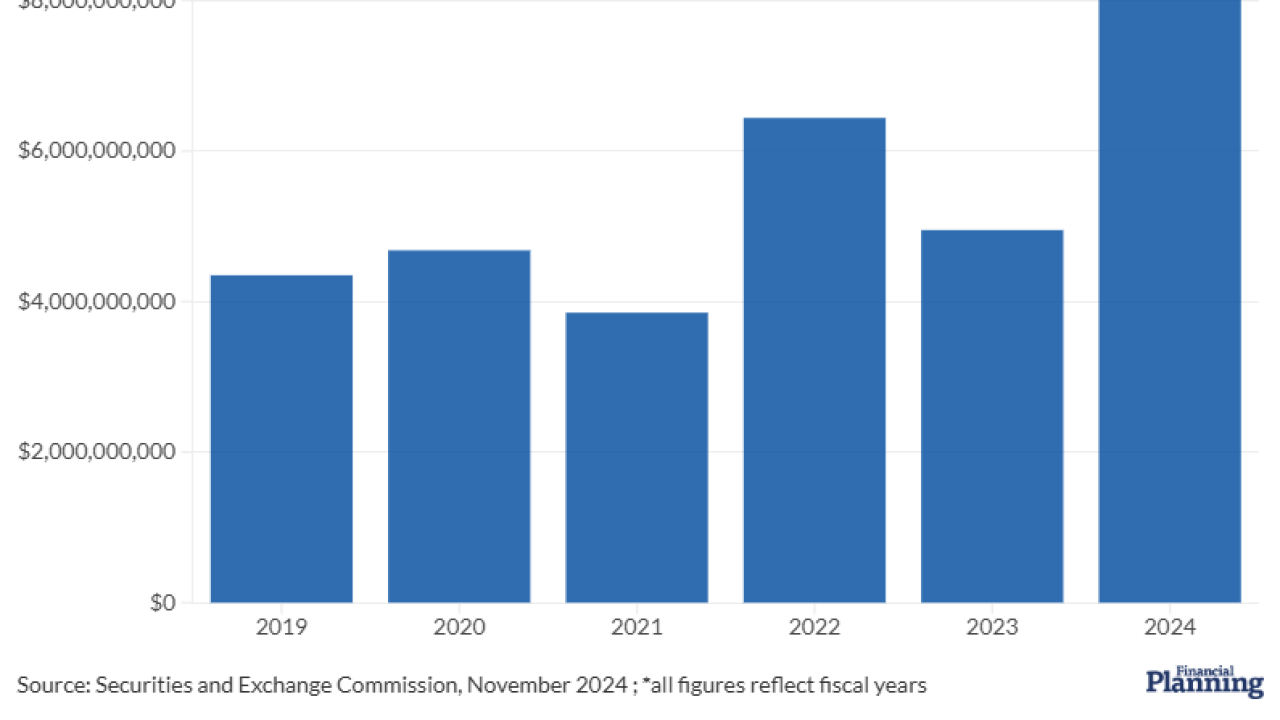PHOENIX -- Because of its increasing complexity and impacts on financial firms beyond banks, firms that run registered investment funds are suggesting that the Volcker Rule gets ‘re-proposed’ before it goes into effect in July.
“We would all be hopeful for a re-proposal,’’ said David Oestreicher, Vice President and Chief Legal Counsel, for T. Rowe Price Associates, a publicly owned Investment firm based in Baltimore.
“A re-proposal would be the healthiest and best step,’’ he said, at the Investment Company Institute’s Mutual Funds and Investment Management Conference.
Take T. Rowe Price’s own case. The 75-year-old firm offers mutual funds, subadvisory services, and separate account management to individuals, institutions, retirement plans, and financial intermediaries. It is not the kind of financial institutions – a bank – that the Volcker Rule is designed to preclude from trading in risky securities that could be at odds with the safety net that is afforded by federal deposit insurance and other government support mechanism.
But T. Rowe Price does own and operate a small savings bank that sells certificates of deposit with the promise to potential customers of “ the benefits of FDIC insurance and predictable interest payments, plus world-class service from a name you trust.”
http://individual.troweprice.com/public/Retail/Products-&-Services/Savings-Bank
Because of that savings bank, the Volcker Rule will apply to all T. Rowe Price businesses once its strictures take effect this year, Oestreicher said.
That will put a crimp on its mutual fund business, he indicated, for instance.
When T. Rowe Price launches a fund, it seeds it with its own capital.
But, under the Volcker Rule that is being brought into law as part of the Dodd-Frank Wall Street Reform Act of 2010, it can’t keep that capital in the fund as long as it wants.
Instead, after one year, the company will have to reduce its stake to 3 percent or less of overall capital. That could hamper T. Rowe Price’s efforts to build up the fund and find more investors in it.
The seeding limit needs to be “increased and extended” past one year, he said.
T. Rowe Price has some investment funds that are registed in Luxembourg and sold abroad, as well.
Under the Volcker Rule, its own employees abroad could not invest n those funds, even though every other retail investor could.
And T. Rowe Price will find it hard to set up or continue joint ventures or affiliate relationships with foreign partners, as well. That’s because T. Rowe Price becomes indirectly a carrying horse for Volcker enforcement.
If Price has 25 percent ownership of the joint venture and no day-to-day authority, the joint venture partner would be subject “to the full force of Volcker,’’ Oestreicher said.
Telling the partner that will not be easy, he said. “That is not a call that you want to make and it’s not a call we should be making,’’ he said.
The Vanguard Group is not a bank, noted principal Laura J. Merianos. But it manages fixed-income funds.
And they could be affected by the portion of the Volcker Rule that bars banks from investing in private equity firms or hedge funds.
For instance, tender option bond programs would not be exempt from the strictures of the rules. These are programs where, for instance, an investment can be made, then used as collateral when selling senior notes to some other investor.
This is considered a hedge fund, Merianos said. Vanguard is “deeply concerned” about the effect on money market funds and municipal bond funds, should the funds if manages not be able to put capital in such programs.
Vanguard is also concerned about its ability to seed an exchange-traded fund.
If a fund invests, for instance, in Treasury futures, then the fund becomes a ‘covered fund’ under the Volcker Rule.
Which means banks can’t interact with it.
And who seeds exchange-traded funds?
Banks provide 90 percent of the seed capital. They also are the main “authorized participants” in the market, who create and redeem shares in exchange-traded funds.
So Vanguard is in a difficult position “if we don’t have access to 90 percent of authorized participants,’’ when launching a fund.
But the fund executives have no illusion about how likely it is that a new Volcker Rule will get proposed, before the existing version goes into effect on July 21.
“I don’t think that’s going to happen. The likeliest scenario is that it will be final,’’ with some adjustment of regulation of foreign funds, effects on market-making and investing in sovereign debt.
Congress more likely will “redraw lines” so the rule does “not have to be re-proposed in its entirety, he said.





